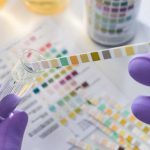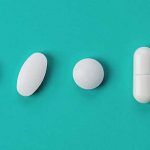Hydrocodone is a schedule II opioid analgesic prescription drug that can be prescribed for those suffering from chronic pain. Brand names of this prescription opioid include Vicodin, Norco, and Lortab.
A person who partakes in intranasal hydrocodone usage (insufflation) will likely experience immediate pain relief and feelings of euphoria. However, there are several effects and dangers that arise when this type of substance abuse occurs.
Effects Of Snorting Hydrocodone
When someone partakes in hydrocodone abuse in the form of snorting, they may experience an intense high or feeling of relaxation. If this pain reliever is prescribed by a doctor, relief from chronic pain can be immediately eased.
Because of this, drug abuse can take place and addiction may occur. According to the U.S. National Library of Medicine, some side effects of hydrocodone include:
- nausea
- drowsiness
- constipation
- low blood pressure
- weakness
- dry mouth
- lightheadedness
Dangers Of Snorting Hydrocodone
Hydrocodone drug use should only be administered as prescribed by your doctor. If opioid abuse occurs with this medication, there are serious dangers that may arise.
Nose Damage
Inhaling hydrocodone through the nasal passages can cause serious side effects such as tissue damage to the interior of the nasal cavity. This may be referred to as necrosis, or the dying of nasal tissue.
A person can develop long-lasting nosebleeds or a runny nose which can become a chronic condition. When this type of substance use is severe, a hole or tear can develop between the roof of the mouth and the nasal septum, making it difficult for someone to eat or breathe regularly.
Lung Damage
To begin with, a person who snorts hydrocodone may experience a variety of physical health problems including dangers to the respiratory system. In fact, a primary concern is hypersensitivity pneumonitis.
This rare condition can be developed from snorting hydrocodone. The condition causes the lungs to become sensitive to any minor irritants and can lead to severe lung inflammation as well as respiratory failure.
Hydrocodone Addiction
According to the National Institute on Drug Abuse, 4-6 percent of people who misuse opioid prescription painkillers will transition to heroin. Opioid addiction in the United States is a major health concern.
Those who snort hydrocodone receive an intense high which can quickly dissipate. Because of this, those who partake in this type of drug usage may begin to use more and develop a drug addiction. This can cause them to seek out other drugs.
Hydrocodone Overdose
Another serious danger of the ingestion of hydrocodone via snorting is the possibility of an overdose. Once addiction occurs, a person may continue to turn to other drugs or larger doses of hydrocodone to achieve the same high.
When this takes place, the likelihood of an opioid overdose increases. Also, the risk of overdose increases when a person combines other drugs that target the central nervous system (CNS), such as benzodiazepines or alcohol.
Some of the symptoms of a hydrocodone overdose include nausea, seizures, respiratory depression, and loss of consciousness. Naloxone is a medication that can potentially help reverse a hydrocodone overdose. This medication may be used in case of an emergency.
Hydrocodone Withdrawal
Serious withdrawal symptoms may occur when a person tries to stop their addiction on their own or quit their medication “cold turkey.” For those who abuse the drug, symptoms can be more severe such as vomiting and cramping.
Thankfully, you can be monitored by healthcare professionals when you choose a detox program at a treatment center. This way, you can receive help with your withdrawal symptoms in a safe environment.
Opioid Addiction Treatment
If you or a loved one need to confront your substance abuse, consider joining a treatment program to help you with your addiction. At Northeast Addictions Treatment Center, we provide a variety of treatment options such as:
- outpatient programs
- mental health resources
- cognitive behavioral therapy
- dual diagnosis treatment
- aftercare services
For more information, please contact us today.
Sources
- Baylor University Medical Center Proceedings — Hydrocodone snorting leading to hypersensitivity pneumonitis
- National Institute on Drug Abuse — Opioid Overdose Crisis
- National Library of Medicine — Intranasal Hydrocodone-Acetaminophen Abuse Induced Necrosis of the Nasal Cavity and Pharynx
- National Library of Medicine: MedlinePlus — Hydrocodone
- National Library of Medicine: MedlinePlus — Hydrocodone Combination Products
- National Library of Medicine: StatPearls — Hydrocodone
Written by
Northeast Addition Editorial Team
©2024 Northeast Addition Center | All Rights Reserved
This page does not provide medical advice.






